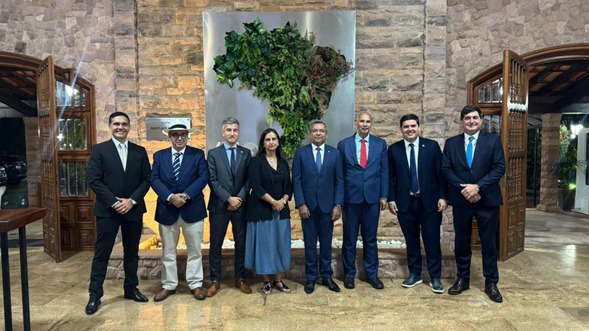

Warm temperatures, colourful tulips, music and food festivals are only some of the reasons why Canadians eagerly embrace this time of the year. For the Delegation in Canada –we had that and more. Even though the second quarter meant we were in full implementation mode with our administrative and technical agenda, a Coffee & Art event allowed for some networking time with our team members and stakeholders.
Being mindful of the impending close of the current Medium Term Plan (2014 – 2018), the team ensured that the Delegation’s commitments were addressed even while preparing for the new one. Project activities were concluded with the production of information products on the recently closed FonTC project and the development of a Group Concept Map (GCM) for assisting food safety information management in the Caribbean.
Great progress was also made on 3 project ideas which have been incubating for a while. In this regard, partnership engagement was strong, particularly for the preparation of concept notes and in undertaking targeted project activities such as the Food Loss and Waste study. Collaborators ranged from industry (private sector), academia and Government to non-governmental organizations (NGOs), highlighting the continued relevance of our work to a diverse group.
On the administrative front, programmed meetings were held to keep our main Government stakeholders attuned to current developments and activities of the Delegation and the Institute. Additionally, the opportunity to contribute to the implementation strategy of Canada’s new Feminist International Assistance Policy (FIAP) was optimized and several recommendations underscoring the role of agriculture and food & nutrition security in the development agenda, were submitted.
As the IICA “brand” becomes more widely known, new prospects are emerging for establishing consortia and partnerships. The Delegation was therefore pleased to be approved as an Associate Member of the Food Security Policy Group of Canada, which is comprised of NGOs all committed to advancing food security in developing countries. With shared interests, the likelihood for project collaborations of various types is high.
The “Fantastic Four” team in the office remains committed and productive and joined for the Summer by a bright young graduate, Camille, plans to deliver results beyond expectations!
Happy Summer!
More information:
Audia Barnett
audia.barnett@iica.int











